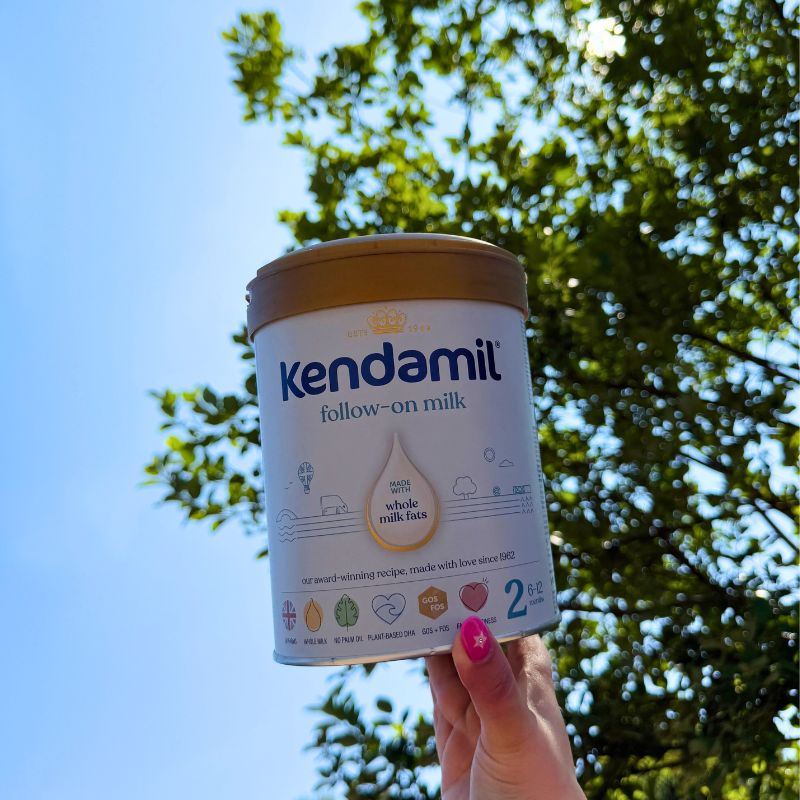Being a parent, especially for the first time, can be pretty terrifying! During those first few months, the vast majority of anxiety you experience will be associated with either sleep or feeding. It can be difficult to know what are normal feeding problems and what are more complicated issues that may require the advice of your Midwife or Health Visitor. Luckily, arming yourself with a little bit of knowledge can help reduce your new-parent fears! The following common feeding problems and advice from Katie Hilton, Kendamil Feeding Expert, will hopefully give you a little extra guidance around feeding your newborn baby.
1. Losing Weight After Birth
Seeing your newborn baby’s weight drop after birth can be of concern for many new parents – after all, they’re small to begin with and we expect them to be gaining weight and getting bigger. But don’t worry, this is totally normal! Babies lose roughly 10% of their birth weight after being born, due to both normal fluid loss and their body adapting to life outside of your body. Usually by around 10 days of age your baby will have regained this weight to be back near to their birth weight, though some babies can be slower than others in regaining this weight (particularly breastfed babies). But as long as your Midwife or Health Visitor can see your baby is getting back towards this weight they’ll be generally happy.
2. Bringing Up Milk
Bringing milk back up after a feed is a normal occurrence – most babies will experience a degree of reflux until they grow stronger and their muscles develop during the first six months of life. The valve between the stomach and oesophagus is usually quite floppy and not fully closed in many newborn babies, which means the milk can quite easily come back up when their position is changed after a feed. As long as your baby is continuing to gain weight and doesn’t appear to be in pain or discomfort, then you don’t need to worry. If you have any concerns, always speak to your Midwife of Health Visitor.
3. Odd Poop Colour
We should really provide all parents with a ’colours of poo‘ chart to decipher their newborn baby’s type of poo! Some of these colours just do not come out of an adult, so it’s normal to worry when you undo a nappy and see what’s lurking inside. So to explain a little further, after your baby’s born you’ll see a black tar-like poo known as meconium; this is totally normal and just them passing the amniotic fluid they’ve swallowed whilst inside your womb, this usually passes within a couple of days. Yellow poo is common in breastfed babies, brown is seen more in formula-fed babies, and then any combination of green and orange are all completely normal. Colours which should prompt a visit to your Health Visitor or GP include grey or white poo, but of course if you have any concerns at all, be sure to let them know immediately.
4. Strange Feeding Sounds
Babies can make a host of bizarre and unusual sounds when feeding, most of which are pretty common and not something you need to worry about. Babies often grunt and gag when they are first learning the suck-swallow process, but this usually disappears after a few weeks once they’ve mastered the technique. If it continues or if your baby turns blue, then speak to a doctor as soon as possible.
5. Frequent Feeds
It’s very, very normal for babies to ’cluster feed‘, which basically means feeding every hour and constantly appearing hungry. Stressful and tiring for you, but totally normal for your baby! This often happens when your baby is going through a growth spurt, so don’t be surprised if this happens right before something big happens developmentally, such as crawling or walking. Basically, indulge your baby’s appetite – it’s a sign of a developmental leap!
6. Potential Allergies
We’re seeing an increase in attention paid to food allergies in newborn babies, with this increased attention is adding yet another item on the long list of things that parents need to look out for. The vast majority of stories we hear related to formula-fed babies is related to perceived lactose intolerance. Most baby milks available on the market unfortunately contain palm oil. You could consider switching your baby to a formula which doesn’t contain palm oil, such as Kendamil Follow-On Milk which is made with whole milk, instead of skimmed milk and which is free from palm oil and fish oil, a known allergen for children. If after trying this, you’re still seeing the symptoms of lactose intolerance then of course speak with your health care professional.
We hope you found this blog on common feeding problems helpful! If you’d like to know more about the Kendamil product range, please click here.
Important Notice: Breastfeeding is best. Kendamil Follow-on milk is only for babies over 6 months, and should be used as part of a mixed diet. Please talk to your Healthcare Professional.

















